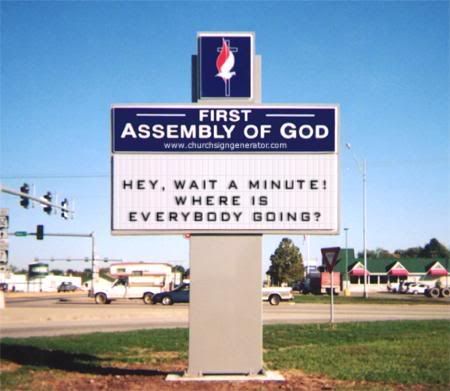
Here are a few excerpts from the "U.S. Religious Landscape Survey":
Based on interviews with more than 35,000 Americans age 18 and older, the U.S. Religious Landscape Survey finds that religious affiliation in the U.S. is both very diverse and extremely fluid.
More than one-quarter of American adults (28%) have left the faith in which they were raised in favor of another religion -- or no religion at all. If change in affiliation from one type of Protestantism to another is included, roughly 44% of adults have either switched religious affiliation, moved from being unaffiliated with any religion to being affiliated with a particular faith, or dropped any connection to a specific religious tradition altogether.
The survey finds that the number of people who say they are unaffiliated with any particular faith today (16.1%) is more than double the number who say they were not affiliated with any particular religion as children. Among Americans ages 18-29, one-in-four say they are not currently affiliated with any particular religion.
The survey finds that constant movement characterizes the American religious marketplace, as every major religious group is simultaneously gaining and losing adherents. Those that are growing as a result of religious change are simply gaining new members at a faster rate than they are losing members. Conversely, those that are declining in number because of religious change simply are not attracting enough new members to offset the number of adherents who are leaving those particular faiths.
To illustrate this point, one need only look at the biggest gainer in this religious competition -- the unaffiliated group. People moving into the unaffiliated category outnumber those moving out of the unaffiliated group by more than a three-to-one margin. At the same time, however, a substantial number of people (nearly 4% of the overall adult population) say that as children they were unaffiliated with any particular religion but have since come to identify with a religious group. This means that more than half of people who were unaffiliated with any particular religion as a child now say that they are associated with a religious group. In short, the Landscape Survey shows that the unaffiliated population has grown despite having one of the lowest retention rates of all "religious" groups.
In addition to detailing the current religious makeup of the U.S. and describing the dynamic changes in religious affiliation, the findings from the Landscape Survey also provide important clues about the future direction of religious affiliation in the U.S. By detailing the age distribution of different religious groups, for instance, the survey findings show that more than six-in-ten Americans age 70 and older (62%) are Protestant but that this number is only about four-in-ten (43%) among Americans ages 18-29. Conversely, young adults ages 18-29 are much more likely than those age 70 and older to say that they are not affiliated with any particular religion (25% vs. 8%). If these generational patterns persist, recent declines in the number of Protestants and growth in the size of the unaffiliated population may continue.
CLICK HERE to read the full reportSo, Americans float around a bit and get restless easily, no surprise there. Did you notice how quickly the numbers are shifting to the "unaffiliated" camp, and the dominant age ranges of those claiming no affiliation?
We have to ask ourselves some serious questions.
What must the church do to reach the younger generations?
As a follower of Jesus, what is my responsibility to the younger generations?

